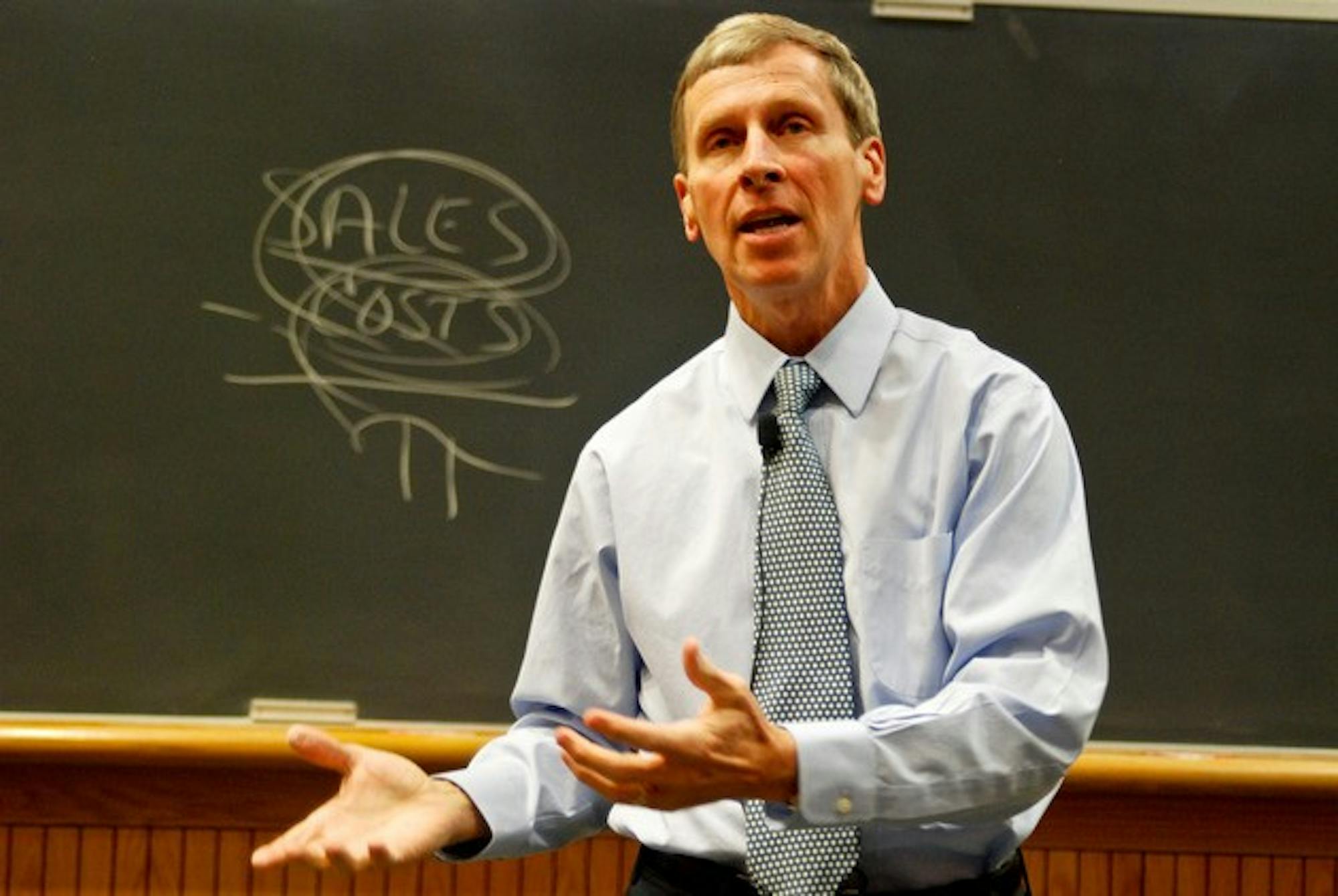Former Gov. John Lynch, D-N.H., outlined how New Hampshire could serve as a model for reform for the rest of the country in on Tuesday.
Invited by the Rockefeller Center as the inaugural Perkins Bass Distinguished Visitor, Lynch discussed the importance of bipartisanship in creating education, health care and economic policies in the state. Bass' son, former Rep. Charles Bass '74, R-N.H., introduced Lynch.
The challenges New Hampshire will face in the future include increasing accessibility to health care and ensuring that all students receive a proper education, regardless of geographic location or economic background, according to Lynch. He stressed the need for the New Hampshire government to set a tone of bipartisanship, and he is optimistic that Governor Maggie Hassan, D-N.H., will be able to deliver that goal.
"As a country, and certainly as a state, we need to remain optimistic that we can solve our problems if we can work together," Lynch said.
Shifting from institution-based to home- and community-based health care will be a significant challenge, Lynch said. Medical practitioners are working together to improve preventative care and mental health care.
"We are much better today at treating people holistically," Lynch said.
Health care currently consumes 18.5 percent of the gross state product, but it must be used effectively, Lynch said. It is necessary to lower costs through partnerships with the federal government and a more efficient use of funds.
Lynch said that his experience as CEO of Knoll helped him to establish credibility with businesses. He said that simple business models, such as ensuring that revenue exceeds costs, can be applied to multiple facets of government.
"I believe that we need to treat businesses like customers," he said. "We want businesses to come to be successful so they can hire more people and keep unemployment rates down."
During Lynch's tenure as governor, New Hampshire was rated the safest state, the most livable state and one of the best states for businesses, he said.
Lynch said that despite the lack of sales or income taxes, New Hampshire still has many benefits to offer.
Raising the compulsory age of education from 16 to 18 in New Hampshire caused the state to have the lowest dropout rate in the nation. The increase in education levels has a double benefit because it offers new opportunities to individual students while also increasing the skills of the workforce, a boon to businesses, he said.
"Students must work on understanding the strong relationship between education and jobs and economic development," Lynch said in an interview. "Education drives jobs, and more education drives better jobs."
New Hampshire businesses have expressed a need for better educated and more highly skilled workers. Technology should improve education by raising quality and lowering costs, he said.
While in office, Lynch initiated Project Running Start, which allows high school students to take courses offered at local community colleges for credit toward both high school and college. The program helps students graduate college earlier and save tuition.
"The challenge is to make higher education more accessible and affordable to a greater number of people," Lynch said. "I think we do a good job of educating our students K-12 and beyond."
Ronald Shaiko, associate director of curricular programs at the Rockefeller Center, said he thought Lynch's view on leadership demonstrates the importance of compromise and working with competing interests to develop public policy.
"If there were more politicians out there like him, we'd be in a better place," Shaiko said.
George Zabel '15 said that he agreed with Lynch's focus on communication.
"I thought it was really interesting how he emphasize face-to-face communication as a key aspect of bipartisanship," Zabel said.
Stephanie Alden '16 said she agreed with Lynch's education initiatives.
"I think that he made a lot of good points about how education can be a tool toward economic development and the benefits that it can provide both to individuals and to businesses," she said.
Lynch, who elected to not seek a historic fifth term as governor, said he will probably return to the private sector. He said he would like to teach at the College at some point in the future.
"I would like to teach a class about the differences and similarities between being the CEO in the private sector and CEO in the public sector," he said.
Lynch served as governor of New Hampshire from 2005 to 2013.
He was named Dartmouth's inaugural Perkins Bass Distinguished Visitor. Lynch will participate in classes and meet with students throughout the year, according to the Office of Public Affairs.
**The original version of this story incorrectly stated that Lynch will have an office in Baker-Berry Library and that he served as governor from 2009 to 2013. He assumed his position in 2005.*




